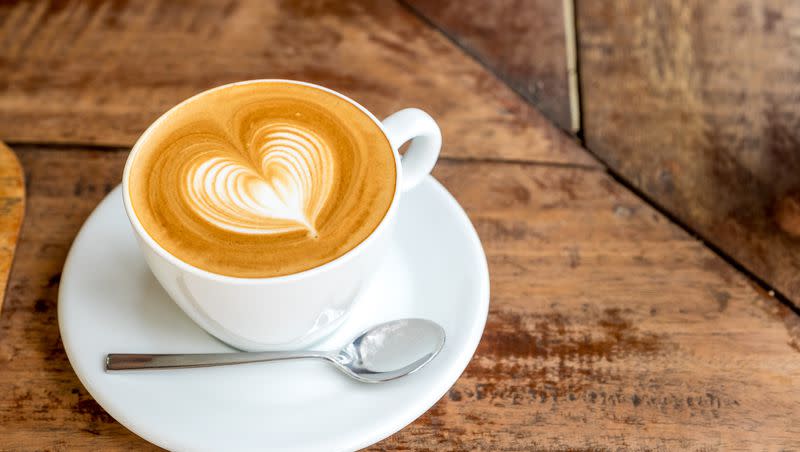How much caffeine is too much?

About 90% of adults in the United States are in a dependent relationship that they can’t give up. This relationship makes them feel alive, is the reason they get out of bed every morning and is always there when they need a pick-me-up.
Sound too good to be true? It’s because it is. Americans have an addiction to caffeine.
Caffeine is the most accessible and most widely used drug in the world, according to the United Brain Association, and “about 8% exhibit a problematic pattern of use known as caffeine use disorder.”
Have you ever wondered if the amount of caffeine you consume every day is actually healthy or what would happen if you went cold turkey and gave it up altogether? The answers to these questions might make you second-guess if you want to stay in such a relationship.
What does caffeine do?
Caffeine is a central nervous system stimulant that, unlike other drugs, is legal and cheap, making it accessible all over the world.
Perhaps the most known effect of caffeine is that once it reaches the brain, it causes alertness and wakes you up.
“Caffeine works by blocking sleep-promoting receptors in your brain called adenosine receptors,” Dr. Rashad Ramkissoon told Houston Methodist. “It can do this because, structurally, caffeine looks very similar to adenosine, the molecule that usually binds to these receptors.”
Adding that “When this happens, the downstream sleep-promoting pathways aren’t activated, meaning you stay awake and alert in the meantime.”
But caffeine doesn’t just affect the brain; it moves throughout the whole body.
“After oral ingestion, caffeine is rapidly and completely absorbed into the bloodstream, with peak blood levels reached in 30 minutes to 45 minutes. Caffeine is metabolized by the liver and is excreted by kidneys via urine. It is quickly eliminated, with a typical half-life of four to six hours,” per the National Insititute of Health.
Related
Managing arthritis pain: 6 effective exercises for joint health
Here’s how to shed the extra pounds: 5 healthful tips for effective fat loss
Can caffeine be healthy?
The Food and Drug Administration said that caffeine can be a part of a healthy daily diet if consumed moderately. Factors such as sensitivity to caffeine, body weight and medications taken with it can affect how much caffeine an individual should take.
Healthy adults can consume a total amount of 400 milligrams of caffeine a day without negative side effects, the FDA said, which is about five cups of coffee.
Adding that, “There is wide variation in both how sensitive people are to the effects of caffeine and how fast they metabolize it (break it down).”
Caffeine isn’t only found in drinks either; many foods have natural caffeine in them.
Here are four foods that contain caffeine, per Healthline:
Cocoa beans and chocolate.
Kola nut.
Guarana.
Chewing gum.
Because caffeine does not have a taste, many medications include it as an ingredient. Make sure to read the labels before consuming medication such as Excedrin, or you’ll be lying awake at night wondering why you’re not tired.
How serious is a caffeine addiction?
According to the United Brain Association, 8% of regular caffeine users struggle with caffeine use disorder.
“Caffeine use disorder is a problematic pattern of caffeine consumption characterized by a persistent desire to cut down or control use of the substance along with unsuccessful efforts to do so despite problems caused or worsened by caffeine,” per Johns Hopkins Medicine.
Withdrawing from caffeine can have varying symptoms depending on the person. The most common symptoms, according to the National Institute of Health, include a headache, tiredness, fatigue, irritability and difficulty concentrating.
Unlike other drugs where completely quitting can have dangerous side effects, you can quit caffeine cold turkey. However, “To avoid these undesirable side effects, including the agonizing headaches associated with withdrawal, go slowly and don’t expect to give up your caffeine habit overnight,” per Cleveland Clinic. “In fact, quitting caffeine cold turkey can actually further your reliance on it.”
